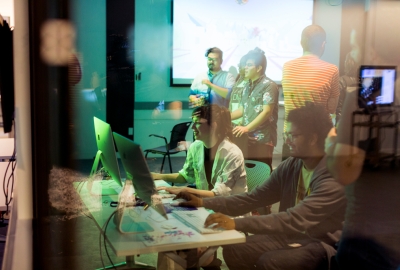This course examines approaches to research by and for Indigenous communities.
Readings appraise the lived consequences of research for Indigenous peoples. Discussions and assignments attend to participatory ethics and practices, Indigenous data sovereignty, and Indigenous feminist interventions on research. This course is designed for students engaging in a larger project such as a culminating research project, inquiry project, creative project, or curriculum project.
Course #
RESCH-GE 2006
Credits
3
Department
Applied Statistics, Social Science, and Humanities


